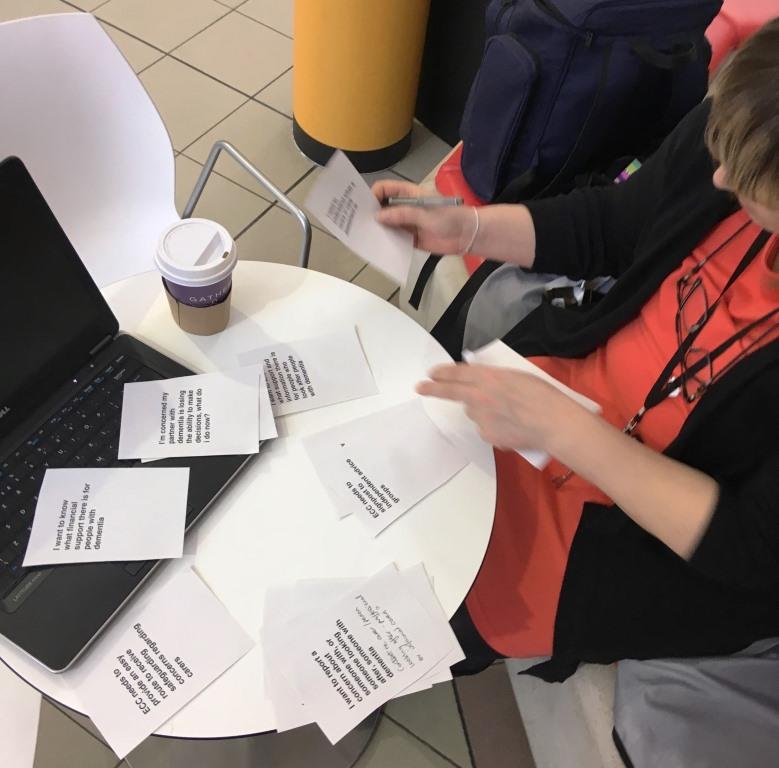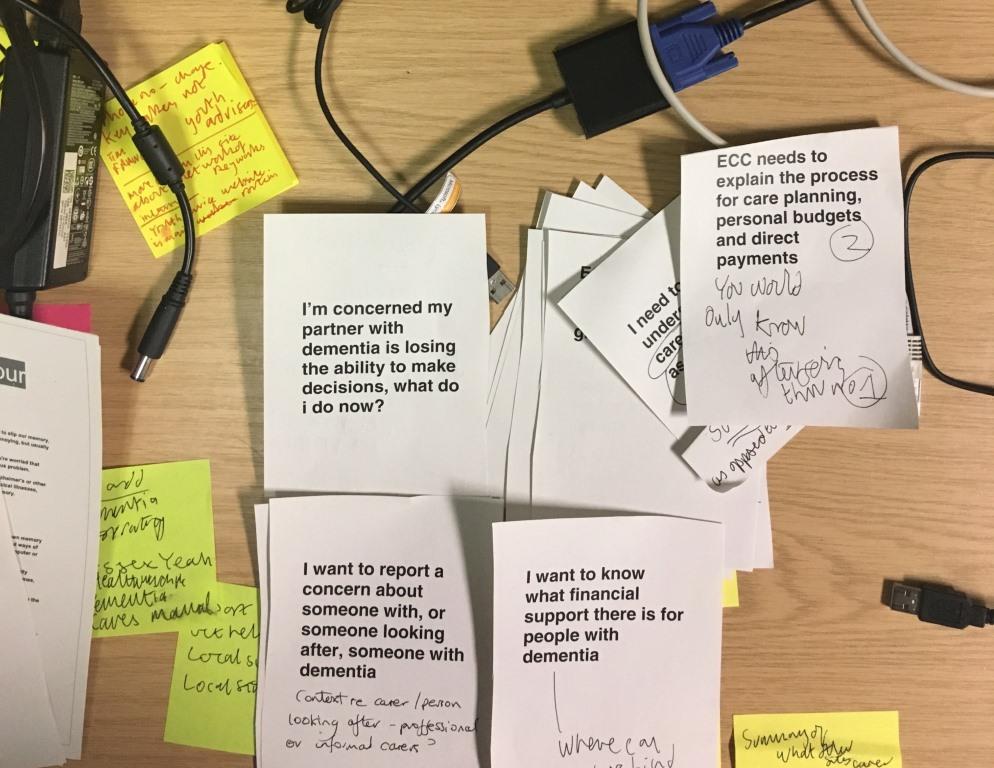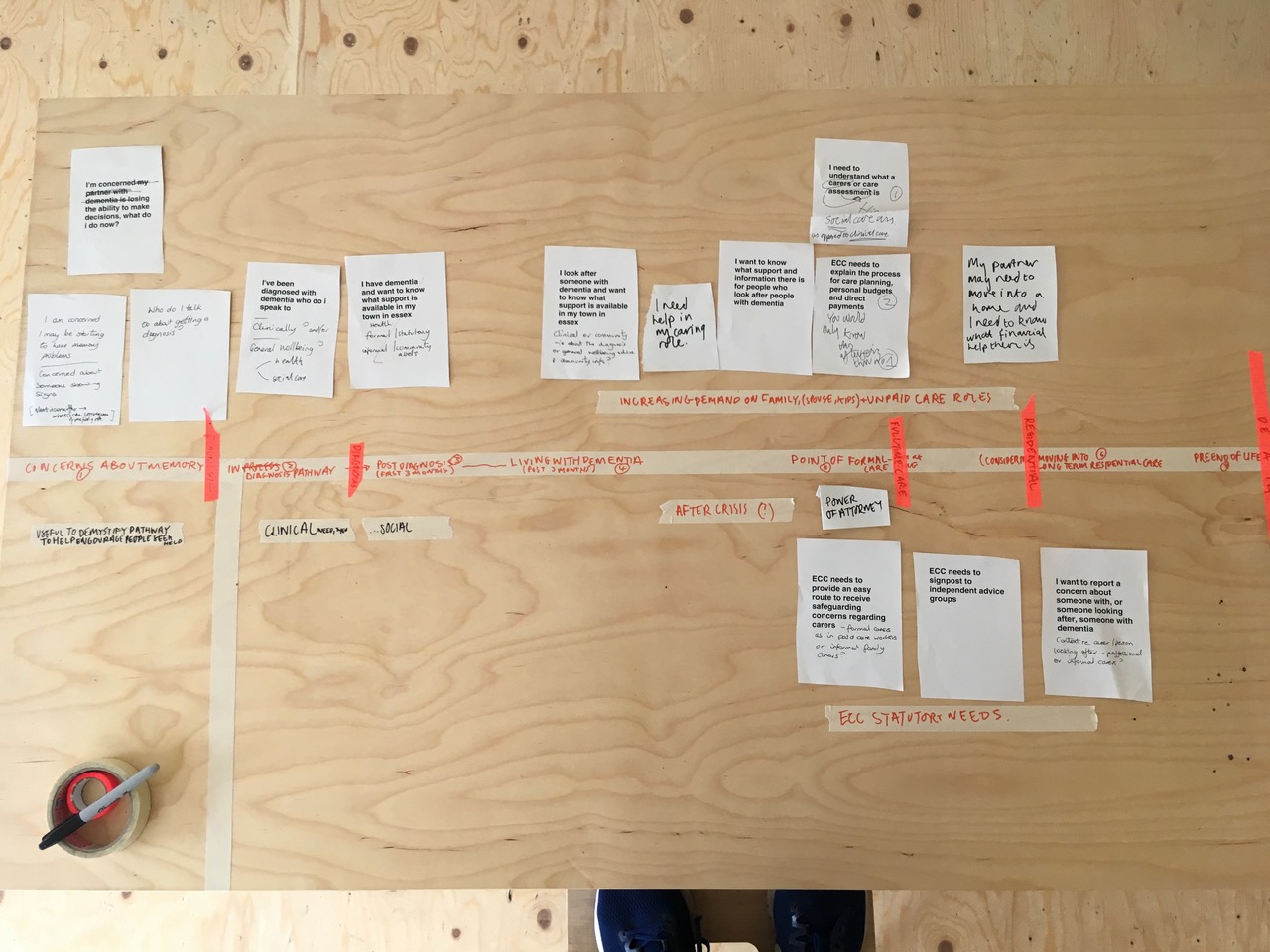
As part of our content redesign work on Living Well Essex, we recently published an updated set of pages about dementia.
Dementia is a significant condition. It describes a group of symptoms including memory loss and difficulties with thinking, problem-solving or language skills. It is associated with a decline in memory or other thinking skills severe enough to reduce a person's ability to perform everyday activities.
It’s a very broad condition with huge variety in its symptoms, severity and progression. The most common type of dementia is Alzheimer's.
A growing condition
Dementia mainly affects people over the age of 65 (one in 14 people in this age group have dementia), and the likelihood of developing dementia increases significantly with age. However, dementia can affect younger people too. There are more than 42,000 people in the UK under 65 with dementia.
As a condition, it’s growing, and large amounts of the ageing population are expected to be affected by it. Dementia is often just one part of a complex set of care requirements.
Working out a testing approach
Testing and research with people living with dementia presents its own challenges, and benefits from having staff who have been specially trained. Essex County Council (ECC) has commissioned several research activities and studies of people living with dementia.
One of the current priority areas of the 2017-2021 Dementia Strategy is a project specifically looking at how people living with dementia access existing information advice and guidance. The results of this will feed into future iterations of this content. Our project was working to shorter timescales, so we took the approach that we would update the content, then once as other the other research was is completed, use those insights to further revise it.

Early draft of user needs
Validating the draft user needs
We started with a set of hypothetical user needs. We then tested these internally and drafted copy based on them. This copy was reviewed by subject matter experts then redrafted. This redrafted text was then taken to carers groups and people within, and external to, Essex County Council who have experience living with dementia, as well as a group who are in the age demographic but who do not have a diagnosis.
Mapping out the user needs along the clinical pathway

Mapping the user stories along the clinical pathway helped generate a structure for the pages
The structure of pages echoed was informed by the existing research work identifying relevant cohorts and mapped onto a clinical pathway of dementia, which in itself is quite linear and logical, though the speed of people’s individual journey along that may vary considerably. We removed a lot of the clinical information in favour of linking to external sites.
Research and testing
We spent time with carers of dementia, but we did not test on anyone with a formal dementia diagnosis - this work will be done as part of the separate project. Interestingly, some of the carers felt it would be inappropriate to test it with the people with the condition.
Learning from established style guides
The language we used built on work into positive language and guidance documents by the Alzheimer’s Society and the Dementia Strategy, both of which were produced in partnership with people living with dementia.
Broaching difficult subjects
Obviously this is a sensitive subject, where emotions can run quite high. In this context, language really matters. An example of this was how ‘blunt’ the text should be. When writing a page that describes what dementia is, it feels important to state that dementia is a terminal disease of the brain. But then there’s also the awareness of the reader’s emotional state: someone may be reading this shortly after their or a loved one’s diagnosis.
So we had two versions, one which was more vague about the long term prognosis, the other one which was very clear. This question -- to what degree should the text be ‘honest’ -- caused a discussion in one of the carers groups, and the resounding opinion was: it’s better to be clear. The blunt one stayed.
 One of the new pages on Living Well
One of the new pages on Living Well
Unearthing other opportunities
There are other, important, cohorts which are relevant to dementia, such as people who run shops or cafes and who want to learn more about it. These are well-served by other organisations, who we linked to. One consistent need which did keep coming up though was the ability to find local support groups and ‘hyper-local’ activities. This was out of scope of our project but we’ve since fed it into work being done elsewhere in the organisation, and logged the pertinent questions of who is best placed to aggregate - and maintain - this information.
The pages are now live, and in a few months we’ll have more of an idea on how they are performing, as well as more insight from the other research project ECC are running.
Leave a comment